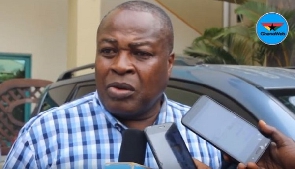Bunso (E/R), May 27, GNA - Mr Kwadwo Baah-Wiredu, Minister of Finance and Economic Planning has observed that operations of formal financial institutions had denied about 60 per cent of Ghanaians in rural communities access to their services in the country. He said this had necessitated the services of micro finance institutions such as credit unions to bring their services to the doorsteps of rural dwellers.
Mr Baah-Wiredu made the observation in an address read on his behalf at the opening session of the 14th Educational and Biennial Delegates Conference of Ghana Co-operative Credit Unions Association (CUA) at the Bunsu Cocoa College in the Eastern Region. The five-day conference was under the theme "The vision of making credit union a household word, prospects and challenges". He explained that it was the role being played by CUA that Government provided support for training in governance and leadership to strengthen the internal administration structures of the association through the Rural Financial Services Project (RFSP).
Mr Baah-Wiredu said in addition, it was in recognition of its role that Government provided budgetary support to the association to enable it collect basic data on its operations and monitor the training of its members. He advised the association to make its operations transparent and publish its financial statements for assistance from Government and its development partners.
Vice President Alhaji Aliu Mahama in an address read on his behalf by Mr Yaw Barimah, Eastern Regional Minister, assured CUA of Government's determination to enact a law to regulate activities of credit unions in the country. He said Government was convinced that credit unions could play an important role to achieve its objective in job and wealth creation for the urban and rural poor.
Vice President Aliu called on CUA to ensure credit unions were established in workplaces, among professionals, market women and in rural communities to assist the people to learn how to manage their limited resources wisely for the future.
Mr Paul Y. B. Kotobridja, Chairman of the Board of Directors of CUA, said between 2004 and 2005, membership of CUA had increased from 132,000 to 192,000 and the number of credit unions also increased from 240 to 273. He said the association was able to increase the deposits of its members from 206 billion cedis in 2004 to about 500 billion cedis in 2005 and increased loan facilities to members from 142 billion cedis to 325.2 billion cedis. Mr Kotobridja said to reduce spending on training and organization of annual and biennial conferences, the association decided to construct its own training centre at Kasoa but out of the 6.6 billion cedis expected for the project only 3.2 billion cedis were realised by members in the form of shares. He therefore, appealed to the incoming executive of the association to institute measures to ensure that all accredited unions purchased shares to realise more funds to complete the project.
Dr J. K. Agyekumhene of the Office of the President announced that Government had approved the release of 3.5 billion cedis to CUA to purchase micro safes.
Click to view details



Business News of Saturday, 27 May 2006
Source: GNA
















